''There's one question to Putin: why he told nothing about that his economy has stagnated for 10 years?!''
Not all economists agree with the president that Russia had no other choice but to raise the retirement age
On August 29, Vladimir Putin on the air of federal TV channels appealed to the Russians to treat with understanding the unpopular at all times decision to raise the retirement age. According to him, the state has no other choice: ''We cannot tolerate a low income of the seniors and to wait until the pension system 'cracks' and finally collapses.'' However, not all economists agree with the president's assessment, in their opinion, Russia had other options to solve the problem. Read more in the comments of Realnoe Vremya experts.
''The demographic gap of the late '90s is comparable to the years of the war''
At the beginning of the address, the president explained that the main task of the infamous bill is ''to ensure sustainability and financial stability of the pension system'', which will preserve and increase the pensions of current and future pensioners.
Putin noted that the need to raise the retirement age was already discussed in the Soviet years and in the 1990s, but decisions were not taken or were postponed. In the early 2000s, we returned to the topic, because it was obvious that Russia would face serious demographic problems:
''The demographic gap of the late '90s turned out to be comparable to the 1943 and 1944 war years. And now this very little generation born in the '90s is entering the working age. In this regard, the burden on the pension system is increasing even more,'' the head of the state explained.

The conclusion is clear: the working-age population is declining — the opportunities for payment and indexation of pensions are decreasing, which means that something needs to be changed. Putin reminded how he initially opposed raising the retirement age: ''It was necessary first to overcome the consequences of the shocks of the '90s, to ensure economic growth.'' The country worked to generate the necessary financial resources and to direct them to social development. At the same time, the president understands the disappointment of the Russians who have already planned to go on a well-deserved rest but will not be able to because of the reform.
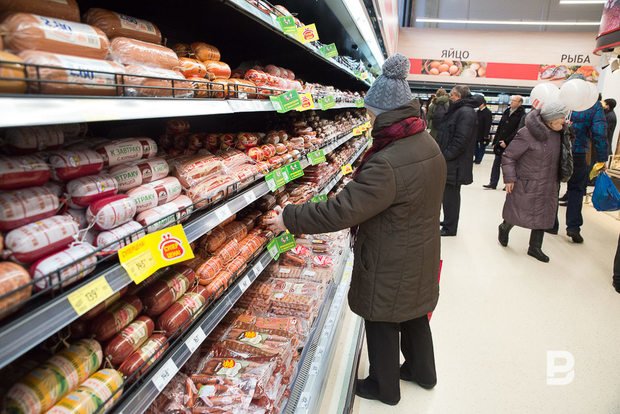
''I agree, they crossed the line with their luxury apartments''
According to the president, the government has studied all possible alternatives, but ''it turned out that, in fact, they do not solve anything radically. At best, it is just sticking plaster solutions.'' In particular, the introduction of increased income tax rate, for example, 20% of high income, ''can give, but it is not certain, about 75-120 billion rubles a year. These funds would be enough for six days at best'', as the daily need for pensions in Russia is 20 billion rubles. Another option is to sell part of the state property, such as Pension Fund buildings, including its regional branches:
''Of course, I agree that they crossed the line with their luxury apartments. It irritates people. And I also support it. The total cost of these facilities is estimated at 120 billion rubles. But even if we sell them all and allocate the money to pensions, it would be enough for about six days. It is also not an option.''
Additional taxes for oil and gas companies will bring income to pay pensions for about two months. Then the payments themselves will depend on price fluctuations for oil in world markets. It is also not an option to cover expenditures of the Pension Fund from the budget. This year, 3,3 trillion rubles have been allocated for these purposes, 1,8 trillion of them for the payment of insurance pensions. If you aim at an average pension of 20,000 rubles, without changing anything, the Pension Fund deficit will increase by half, to 5 trillion rubles — ''this is more than all the costs of national defence and security of the country.'' This would destroy Russia's finances, force Russia into debt or to print unsecured money: ''Therefore, our inaction now or the adoption of temporary ''cosmetic'' measures would be irresponsible and unfair to the country and to our children.''
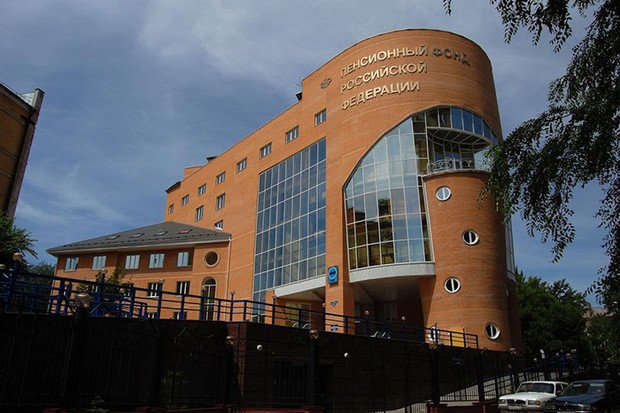
The retirement age will be increased for women as much as for men
Putin reiterated that he was against the reform, but the trends in demographic development and the labour market show that ''it is impossible to drag on any longer''. However, the decisions should be fair and balanced — the president proposed to soften the measures:
— To increase the retirement age for women not by 8 years — up to 63 years, but only by 5 years, like for men: ''The retirement age for women should not increase more than for men.''
— Mothers with many children will retire ahead of schedule: if a woman has three children, then by three years earlier, if four — by four years earlier. For women with five or more children, everything will remain as it is now: the retirement at the age of 50.
— Citizens who retire under the old legislation in the next two years will receive a benefit – they will be issued the pension six months earlier than the new retirement age.
— In the transition period, the pre-retirement age will be five years before retirement. Employers will be held administratively and criminally liable for the dismissal of such employees and for the refusal to hire them. If the person resigns himself or herself, he or she will be paid the maximum size of the unemployment benefit — not 4,900 rubles, as it is now, but 11,280 rubles. In addition, workers of pre-retirement age will receive paid 2 days for free medical examination.
— Benefits at retirement will now be not only for miners, workers of hot shops, chemical industries, Chernobyl workers, a number of other categories, but also for the indigenous peoples of the North. Rural residents will also be supported by a 25% increase in the fixed payment of insurance pensions for non-working pensioners with 30-year experience in agriculture.
— Who began to work early, they will retire earlier. Women will have the right to retire early if their working experience is more than 37 years, and men — more than 42 years.
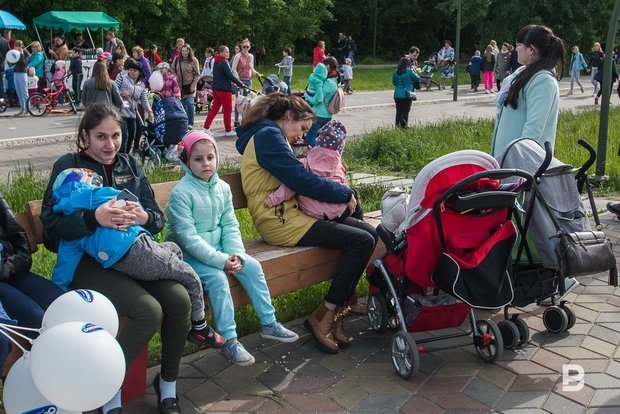
— During the transition period, all federal benefits valid as of 31 December 2018 will be retained — benefits for real estate and land taxes. As before, the benefits will be available to women from 55 years and men from 60 years. Regional benefits, such as free travel on public transport, housing and communal services, capital repairs and gasification, benefits for the purchase of medicines and a number of others will also be preserved.
''I has given you the objective, detailed and absolutely sincere report on the current state and proposals for the sustainable development of the pension system in our country. Let me stress again that we have a difficult but necessary decision to make. I ask you to treat it with understanding,'' Putin concluded the speech.
''No pension disaster occurred''
Economist Nikita Krichevsky on his Facebook page called the package of the proposals of the president ''the best option of all that could happen'', listing the measures to soften the reform:
''Again, the increase in the retirement age was predetermined, another question was whether it was necessary to break the pension system through raising the age limit. But they decided as they decided, and now, when the amendments to the bill have been introduced personally by the president, we have to take this decision for granted. Because this is our president, friends, even if one of you voted for another candidate or did not vote at all. At the end of the day, no pension disaster occurred, I personally assumed that it would be more liberally tougher.''
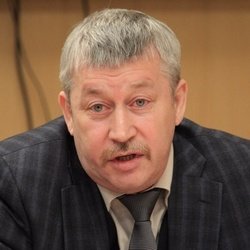 Rustem Shayakhmetov, Associate Professor of Economics and Management at Ufa State Petroleum Technological University, Head of R-Invest, also disagrees with the conclusion of the president that Russia had no other options but to raise the retirement age:
Rustem Shayakhmetov, Associate Professor of Economics and Management at Ufa State Petroleum Technological University, Head of R-Invest, also disagrees with the conclusion of the president that Russia had no other options but to raise the retirement age:
''Of course, we do have other options. We are often compared to Western countries, where they raise the retirement age. But they do it with an average life expectancy of 80 years, but we have it — 70, men — 66. And sharp changes for the better are not expected. The Western model of pension system has worked quite effectively up to a certain point, but our pension reform has been going on permanently for seven years, and we are jumping from one side to another, and, unfortunately, not everything is in order. In the West, there is still budget funding, but our government has chosen tough solutions. We are told that the pension will be increased by 1,000 rubles, but in Bashkortostan alone people will lose income at an average rate of 13,000 rubles a month,'' said Shayakhmetov.
Therefore, according to the expert, such cosmetic solutions do not solve the problem in principle. In addition, he drew attention to the size of pensions for civil servants: ''In some cases, they exceed 100,000 rubles, and they can be called European.'' ''I don't mind that they have such big pensions, I am for that other citizens should also have worthy pensions, and for that they had the same privileges as civil servants have.''
''It's just putting money out of the pocket of some people in the pocket of others''
Dmitry Travin, economist, Professor at the European University, member of the Committee of Civil Initiatives, reminded that the president acknowledged that the budget has the opportunity not to change the pension system for another 7-10 years, but it will not solve the problem.
 ''What in fact Putin has said. That if nothing is changed, pensions will be little in relation to salaries. That is, the essence of the reform is to take money from people of pre-retirement age and to give it to pensioners. It's just taking money out of the pocket of some people in the pocket of other's. Actually, I do not understand why this is considered a good solution. Of course, if pensions are little – it is bad, but if money is taken away from people of pre-retirement age — it is also bad,'' said Travin.
''What in fact Putin has said. That if nothing is changed, pensions will be little in relation to salaries. That is, the essence of the reform is to take money from people of pre-retirement age and to give it to pensioners. It's just taking money out of the pocket of some people in the pocket of other's. Actually, I do not understand why this is considered a good solution. Of course, if pensions are little – it is bad, but if money is taken away from people of pre-retirement age — it is also bad,'' said Travin.
The economist added that it is inappropriate to compare Russian pensioners with Western ones: they can retire later because their health is better and the standard of living is different: ''There, it happens because the economy is developing. But in Russia, the main solution is not to tinker with pensions, but to develop the economy! Therefore, I have one question for Putin: why he said nothing about the fact that his economy has been stagnating for 10 years?!'' Travin is convinced that with the developing economy the pensions of Russians would be higher.
Konstantin Kalachev, political strategist, head of the Political Expert Group, said that the Putin's decision is confirmed by all calculations:
''Russia had no other choice, and the retirement age had to be raised. This is happening throughout the post-Soviet space and everywhere in the world. Another question: is it right to consider the increase in the retirement age as a reform? Putin today used the expression ''pension reform'', although it was not recommended. And this is indeed a reform, but some decisions taken on the move show that the mathematical calculation is very conditional.''
From the very beginning, Kalachev assumed that the retirement age in the reform would probably be changed, ''because there is no logic that it is raised differently for men and women.''
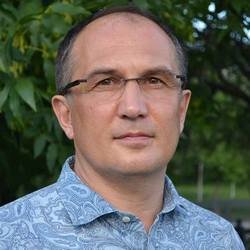 The interlocutor of the publication asks how to characterize the mathematical calculations of the pension system if the president decides to reduce them by three years?!
The interlocutor of the publication asks how to characterize the mathematical calculations of the pension system if the president decides to reduce them by three years?!
The Putin's proposed softening measures also raise questions, for example, why benefits are introduced only for the indigenous peoples of the North: ''There are many Russians living there. Do they need to change their ethnical identity, to become Chukchis, in order to retire with benefits?'' The increased unemployment benefit for a retired employee of pre-retirement age is also clearly not enough to eliminate the risks of these people to be left without a source of income.